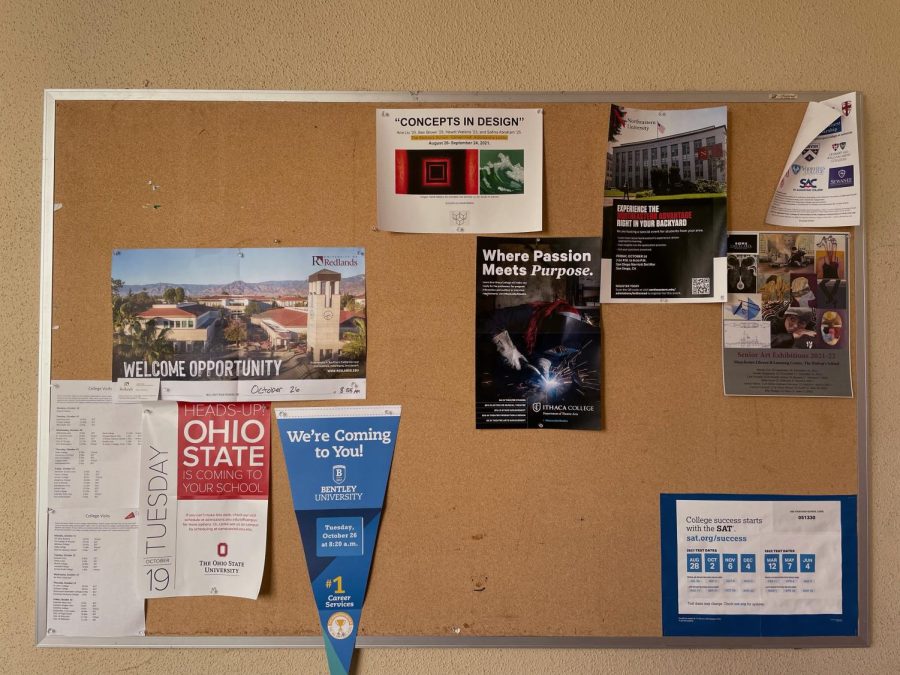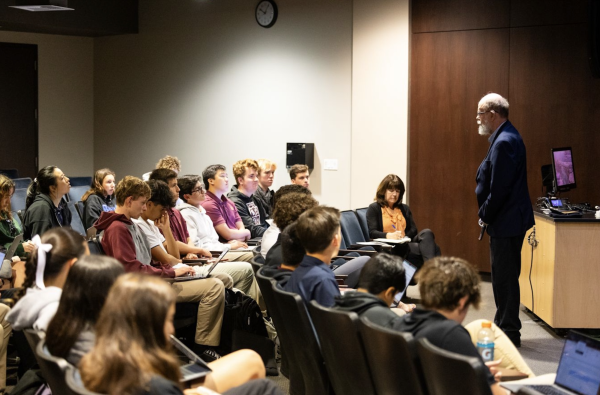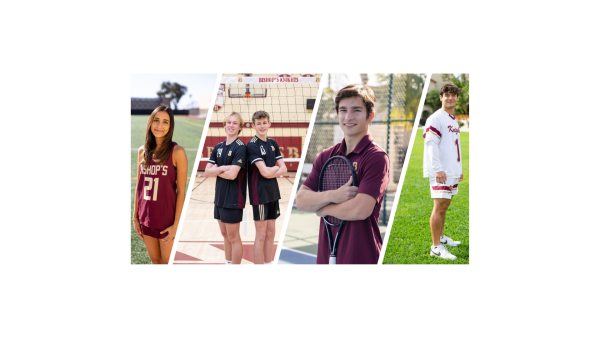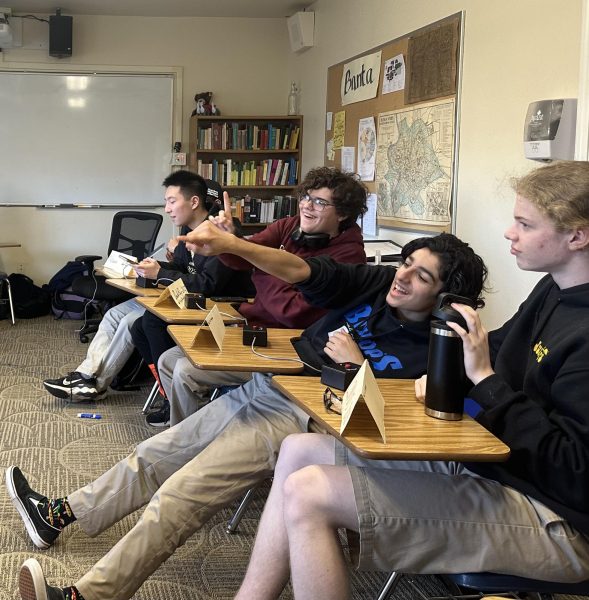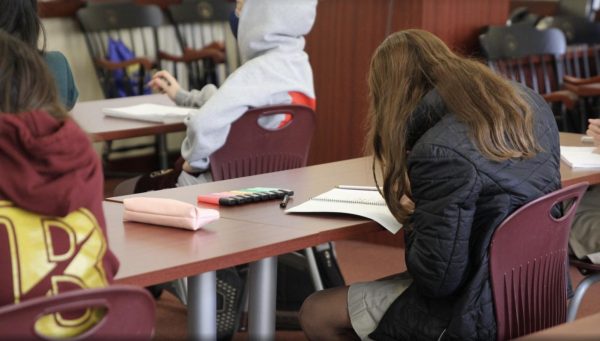One Click Away
A close examination of college visits on campus and how they have changed due to COVID-19
You pass the Senior Rec Room. You feel the tension, excitement, and relief compete with one another. As many monumental deadlines speed-walk towards students in their last year of high school, the paper piles on the desks of college counselors also begin to climb.
As with many tasks, the college application process was a victim of sweeping changes due to the pandemic. We all know the college application process is already nerve-wracking. Furthermore, this shift to online college recruiting, with virtual college fairs and Zoom visits to high schools, garnered mixed reactions. It was often the question of efficiency versus quality—during the pandemic, students could not travel to colleges for tours or information sessions, and even as the schools are beginning to open up to visitors, space and time slots for these tours are both highly limited. However, the Bishop’s college counseling faculty sought solutions in ways that encouraged unprecedented innovation.
For many high schoolers, college visits are the most intriguing parts of the application process. When it comes to researching potential schools, there’s no better substitute for figuring out if a campus will feel like home. “To me personally, I can see and imagine myself on campus or living in the dorm,” explained Elise Watson (‘22). For her, learning about a school through a virtual presentation gives her the fundamental information without having to travel to a college campus physically. “But,” she continued, “knowing the kind of student I will become is more important to me and that is a huge thing that we lost the ability to explore this year.” Originally, college tours allow students to ask questions, meet other prospective students, and understand the school culture on a deeper level. How you feel about schools once you visit in person may affect the direction your college search and application process take.
“Bishop’s is really, really lucky that this year we are 100% in-person,” said Ms. Wendy Chang, the Director of College Counseling. “However, that doesn’t mean everybody else is… so this season, we’ve been hosting a mix of in-person and virtual [visits].” Though novel, this digital option allowed connections for students and college representatives who might not otherwise have the opportunity to meet. “What is really nice is that colleges were able to adapt and shift so that they are able to offer virtual opportunities for students to still learn about their college,” explained Ms. Noor Haddad, an Associate Director of College Counseling. The growing reliance on technology also offers the ability to track the number of participants as well as what they choose to attend and for how long. “It makes it so much easier for historical data collection,” said Ms. Marsha Setzer, an Associate Director of College Counseling. “We have a full view of the entire senior class.”
One such technological outlet used for their efficiency is Scoir, a cloud-based software focused on connecting students and colleges for a unified admissions experience. According to Mr. AJ Jezierski, Associate Director of College Counseling, Bishop’s had moved from Naviance to Scoir a few years ago and has been happy with the transition. As Ms. Setzer best put it, Scoir is like “an umbrella” for all of your applications. While students are able to maintain their college lists and do extensive college research, the college counselors primarily use Scoir to maintain and send school-based documents like transcripts and letters of recommendation. Parents are also able to have their own respective accounts, which connect to the students’ accounts, but not all information is available to the other.
Other than seniors, upper school students have not had many experiences with the platform particularly. “I honestly can’t say I have used Scoir that much,” said Abby Lin (‘23). “I have only really used the platform to look at details of colleges I am interested in.” The spring quarter of junior year is when a lot of the college counseling support starts to be more intense and individualized, explained the college counselors.
During such a busy time, convenience is key. “Instead of us having to manage all those portals for students, Scoir is the one place where it keeps track of those applications and where students apply,” explained Ms. Setzer. For seniors and juniors, this platform is very user-friendly. When a student ‘follows’ a college, adding it to their list, they will be notified when that school schedules a visit. Then, the student would just need to click the button indicating they plan to attend. Juniors aren’t officially allowed to miss class for attending a visit, but seniors can miss up to five class periods.
Another question students had prior to attending a session was about the agenda. All of the interviewed counselors explained that there is no single format for such a diverse range of colleges. “College visits via Zoom are largely the same as the ones held in person,” explained Mr. Jezierski. “The representative will usually give an informational presentation of 10 to 15 minutes outlining the basics of the college before opening the floor for questions from the students.” Often, the order of presentation will depend on how many students attend the meeting. “The admissions officer will likely have an ability to adapt, meaning that in front of a smaller group, they may start off with a Q&A session and make it a lot more informal,” explained Ms. Haddad. “This can be a great opportunity to get key information about the college and then to get more specific insight as to the respective topics of interest or curiosity the student has,” said Mr. Jezierski. “It is also a good chance to put a face to the name, as most of the representatives giving these presentations are the ones who will read Bishop’s applications.”
Undoubtedly, there are still many uncertainties that shroud the foreseeable future. Deadlines are creeping up as the school year bypasses midterms and heads towards the end of the semester. “This is one of those things that is so much easier said than done.” Ms. Chang continued, “This is one step out of so many parts of your journey.” However, both our upperclassmen and college counselors remain hopeful as more creative solutions exceed preexisting limits.
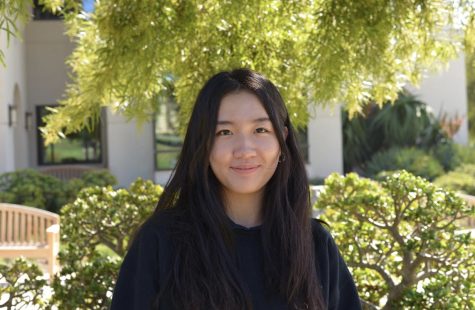
Crystal Li joined The Tower in her freshman year when she moved from Shanghai to San Diego in 2019. Now a senior, she fondly looks back on the four-year...


